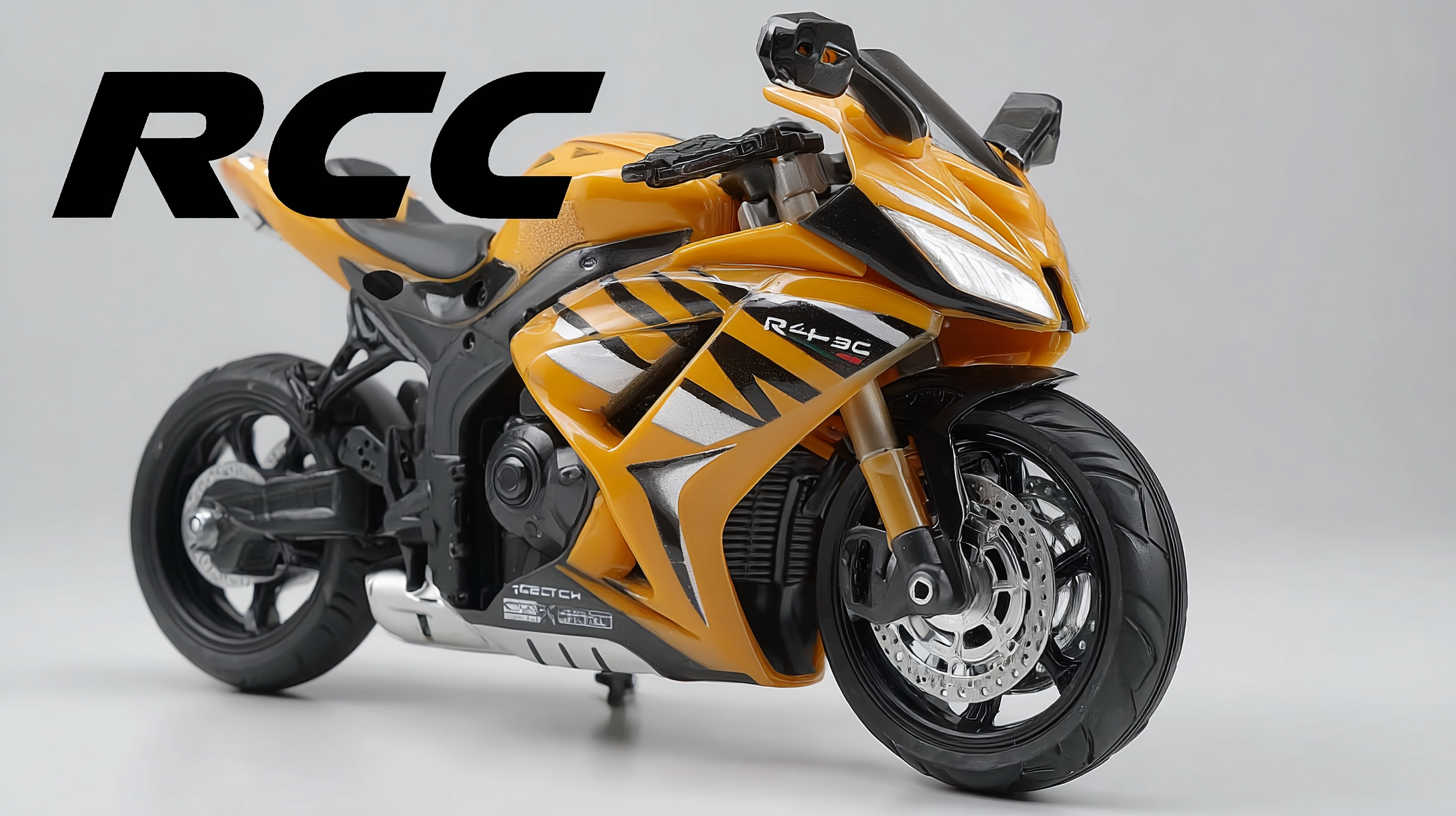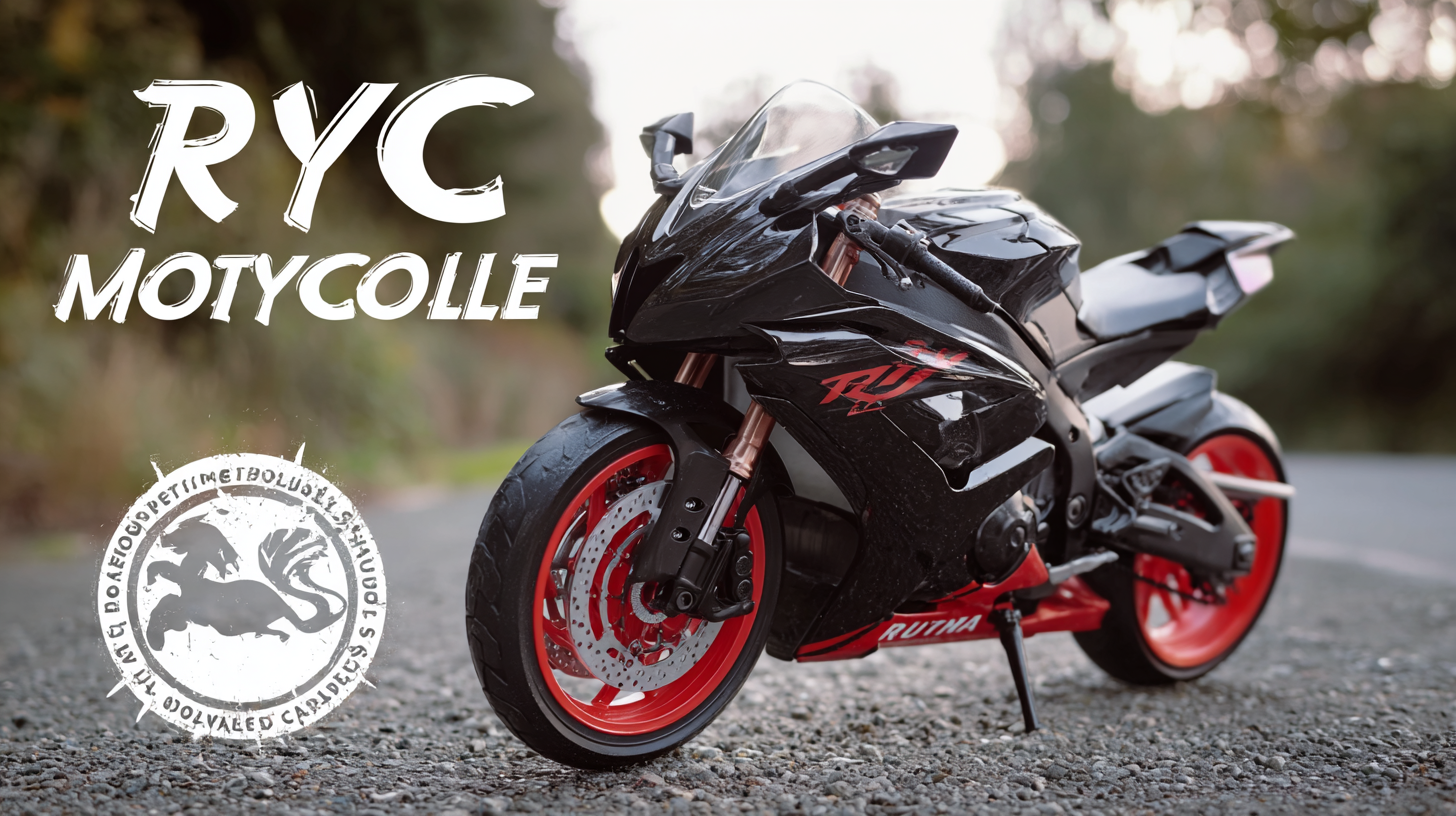
How to Identify Top Quality Suppliers for the Best RC Motorcycle
When it comes to the exhilarating world of RC motorcycles, choosing a top-quality supplier is crucial to ensure you receive a product that meets your performance and durability expectations. In this blog, we will explore the essential technical specifications that define high-quality RC motorcycles and provide insights into the criteria you should consider when identifying reliable suppliers. From battery longevity and motor power to material durability and design efficiency, understanding these parameters will empower you to make informed purchasing decisions. Whether you're a seasoned enthusiast or a newcomer to the hobby, our comprehensive guide will help you navigate the market and find the best RC motorcycle that not only thrills with speed and agility but also promises quality and value.

Key Characteristics of High-Quality RC Motorcycle Suppliers
When seeking top-quality RC motorcycle suppliers, several key characteristics should be prioritized to ensure you are partnering with the best in the industry. One significant attribute is the supplier's experience and reputation in the market. According to a report by Market Research Future, the global remote-controlled vehicles market is projected to grow by approximately 16% annually, underscoring the importance of suppliers who have established a strong presence and trustworthiness in this expanding market.
Additionally, high-quality suppliers typically provide a comprehensive range of products and exceptional customer service. Data from Statista indicates that around 75% of consumers are likely to return to a supplier that has demonstrated reliable support and product availability. Suppliers who invest in research and development to innovate and improve their RC motorcycle offerings are also critical. By collaborating with suppliers that prioritize quality materials and advanced technology, retailers can ensure they offer high-performance products that meet consumer demands and stand the test of time.

How to Evaluate Supplier Reputation and Customer Feedback
When choosing the right supplier for your RC motorcycle, evaluating their reputation and examining customer feedback are crucial steps. A reputable supplier typically maintains a robust online presence, featuring customer testimonials and positive reviews. It is advisable to check platforms such as social media, forums, and specialized RC blogs for insight into customer experiences. A supplier with consistently high ratings and satisfied customers indicates reliability and quality service.

Additionally, engaging with the RC community can provide valuable insights. Participating in discussions, asking fellow enthusiasts about their experiences with specific suppliers, and observing any recurring recommendations can help you gauge a supplier's standing in the market. Look for suppliers who actively respond to customer inquiries and address any negative feedback constructively. This interaction not only reflects their commitment to customer service but also shows that they value feedback, which is vital for any growing business.
Remember, a well-regarded supplier is often a key factor in ensuring your RC motorcycle meets your quality standards and performance expectations.
Essential Certifications and Standards for RC Motorcycle Manufacturing
When searching for top-quality suppliers for RC motorcycles, it is crucial to consider their certifications and adherence to established manufacturing standards. Industry reports indicate that approximately 80% of consumers prioritize product safety and quality when selecting RC motorcycles. Therefore, manufacturers must demonstrate compliance with international standards such as ISO 9001, which emphasizes quality management systems. This certification assures buyers that the manufacturer employs rigorous quality controls throughout its production processes.
Additionally, manufacturers should also comply with specific toy safety regulations, such as EN71 in Europe and ASTM F963 in the United States. These standards ensure that the materials used in RC motorcycles are safe for consumers, particularly important for products aimed at children. A study by the American Society for Testing and Materials revealed that toys that meet these safety standards have a 40% lower incident rate of injuries. By partnering with suppliers who hold these certifications, businesses can not only enhance their product quality but also build trust with consumers, ultimately leading to a more successful market presence.
How to Identify Top Quality Suppliers for the Best RC Motorcycle - Essential Certifications and Standards for RC Motorcycle Manufacturing
| Supplier Category | Key Certifications | Quality Standards | Manufacturing Location | Average Lead Time (Days) |
|---|---|---|---|---|
| Battery Suppliers | ISO 9001, CE | IEC 62133 | China | 30 |
| Motor and Electronics Suppliers | ISO 14001, UL | ISO/TS 16949 | Taiwan | 25 |
| Chassis Manufacturers | ISO 9001, IATF 16949 | ASTM D638 | Germany | 40 |
| Plastic Component Suppliers | ISO 9001, REACH | ISO 12100 | USA | 20 |
| Packaging Suppliers | ISO 9001, FSC | ISO 22000 | Italy | 15 |
The Importance of Communication and Support from Suppliers
When searching for the best suppliers for RC motorcycles, effective communication and ongoing support play pivotal roles in establishing a successful partnership. Suppliers that prioritize clear and open channels of communication can provide invaluable insights into their products, helping you understand the unique features and specifications of each motorcycle. This clarity eliminates potential misunderstandings and fosters a more collaborative relationship, enabling you to make informed purchasing decisions that align with your business needs.
Moreover, robust post-sale support from suppliers can significantly enhance customer satisfaction and brand loyalty. A supplier who is readily available to assist with troubleshooting, warranty claims, or even spare parts ensures that you can address any issues swiftly. Such support not only maximizes the performance of your products but also reassures customers that they can rely on you—and, by extension, your supplier—for a seamless experience. Ultimately, prioritizing suppliers that excel in communication and support sets the foundation for long-term success in the competitive market of RC motorcycles.
Tips for Building Long-Term Relationships with Quality Suppliers
Building long-term relationships with quality suppliers is crucial for anyone looking to acquire top-quality RC motorcycles. Start by prioritizing open communication; regularly discussing expectations, feedback, and concerns can significantly strengthen your partnership. This ensures that both parties are on the same page, leading to better product outcomes and increased trust. Establishing clear guidelines for timelines, quality metrics, and pricing can also prevent misunderstandings and foster a more collaborative environment.
Another key element in maintaining a successful relationship is mutual respect. Acknowledging the expertise of your suppliers and showing appreciation for their efforts can go a long way. Regularly reviewing performance and providing constructive feedback can help suppliers improve while reinforcing your commitment to the partnership. Additionally, consider exploring opportunities for joint ventures or co-marketing efforts, as these initiatives can create a sense of shared goals and further solidify your bond, ultimately benefiting both parties in the long run.